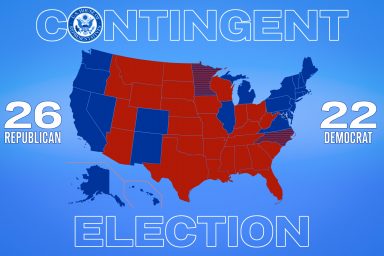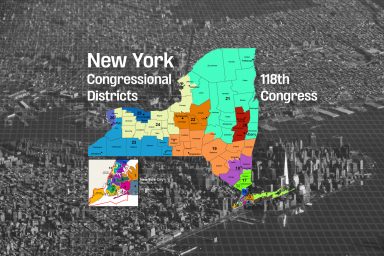A decade ago, the Supreme Court gutted the Voting Rights Act in a decision that has affected every federal election since.
|
Listen To This Story
|
Just about every news outlet covered the first anniversary of the controversial Supreme Court decision that terminated a woman’s right to choose. However, far fewer have written about the 10-year anniversary of another momentous ruling that has lastingly eroded US democracy.
It has now been a decade since the Supreme Court held in Shelby County v. Holder that systemic racism is no longer a problem in the US and that, therefore, even states with a history of discrimination can do just about anything they want with their election laws.
That reasoning was either incredibly dumb or extremely devious.
“[Throwing] out preclearance when it has worked and is continuing to work to stop discriminatory changes is like throwing away your umbrella in a rainstorm because you are not getting wet,” Justice Ruth Bader Ginsburg famously noted in her dissent.
History has proven her right… and many marginalized demographics have been left standing out in the rain ever since.
That’s because the 5-4 decision to overturn the heart of the Voting Rights Act (VRA), the so-called preclearance provision, allowed Republican lawmakers in those states to immediately begin creating obstacles to voting that made it more difficult for minorities and young people, i.e., likely Democratic voters, to cast their ballots.
Make no mistake, every election since Shelby County v. Holder has been tainted. Many of the laws that rigged the playing field in favor of Republicans would never have survived preclearance, which required the federal government to review them before they went into effect.
Of course, there is no telling how seriously the Department of Justice would have taken this responsibility during the Trump years. But, then again, maybe he wouldn’t have won without voter suppression laws having been been enacted in various states in which he held narrow majorities.
Starting within hours of the Shelby County decision, Republican-controlled states sprung into action. In the 10 years since, they have passed hundreds of new voting laws and closed more than 1,500 polling places, which has severely restricted the access to the ballot box for low-income Americans.
It didn’t take a genius to figure out that this would happen, and most of the justices on the Supreme Court are no dummies, so it is safe to assume that this erosion of voting rights was deliberate. That would also track with some of the other, highly political decisions the court has reached, including the one overturning Roe v. Wade.
And who knows how the elections in the intervening years would have turned out without the Shelby County ruling. A case can certainly be made that many House and Senate races might have turned out quite differently if preclearance had still been in place.
In addition, with no chance of passing federal legislation that would better protect US elections from voter suppression bills enacted in states with a history of discrimination, it is safe to say that the effects of Shelby County will continue to reverberate.
In other words, the ruling is going to have a negative impact on every national election (and many more in the affected states) of the foreseeable future.
It is also important to remember that, while it recently ruled against Alabama’s racially gerrymandered congressional map, the Supreme Court is expected to issue a decision any day now in another case that would give the death knell to the VRA.
In Moore v. Harper, North Carolina Republicans argue that even state courts should not have a say in overturning discriminatory voting laws.
So, yes, the abortion decision was so radical that it deserved all of the coverage it got on its anniversary, but there is a case to be made that Shelby County has had, and will continue to have, a greater impact on the US as a whole.




